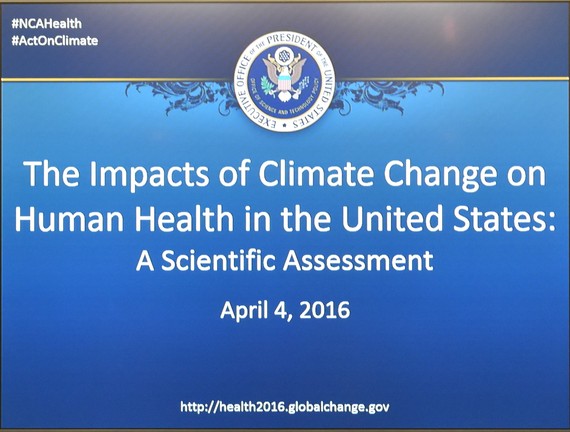WASHINGTON, DC (Herald de Paris) -- Over 1800 peer reviews by scientists over a 3 year period has resulted in string of warnings to the population about the impact of current and future climate change on the human population. The report, released by the Obama Administration, directly from a panel at the White House today, tells the alarming results that climate change will have on daily lives. The scientific community is confident in the report which has been peer reviewed multiple times.
US Senator The Honorable Edward J Markey
(PHOTO ©2016 Anna Wilding, Carpe Diem Films, LLC., and Herald de Paris )
In other words, watch out folks, this is real.
The risks to human health will continue to grow in all areas as the climate continues to change.
So what can be expected? Well, you had better start preparing for life changing events now. Future ozone-related human health impacts attributable to climate change are projected to lead to hundreds to thousands of premature deaths, hospital admissions, and cases of acute respiratory illnesses each year in the United States, by 2030.
Air pollution and airborne allergens will likely increase, worsening allergy and asthma conditions.
It is going to be too hot to work outdoors in some areas, which will affect food supplies, as well as the quality of nutrition in our food.
Extreme heat can be expected to cause an increase in the number of premature deaths, from thousands to tens of thousands each summer, which will outpace projected decreases in deaths from extreme cold. One model projected an increase, from a 1990 baseline for more than 200 American cities, of more than an additional 11,000 deaths during the summer in 2030 .
Warmer winter and spring temperatures are projected to lead to earlier annual onset of Lyme disease cases in the eastern United States and a generally northward expansion of ticks capable of carrying the bacteria that cause Lyme disease.
Water-related illnesses will increase. Runoff from more frequent and intense extreme precipitation events, and increased water temperatures, will increasingly compromise recreational waters, shellfish harvesting waters, and sources of drinking water, increasing risks of waterborne illness.
There will be an increase the exposure of food to certain pathogens and toxins. Rising temperature and increases in flooding, runoff events, and drought will likely lead to increases in the occurrence and transport of pathogens in agricultural environments, which will increase the risk of food contamination and human exposure to pathogens and toxins. This will increase health risks and require greater vigilance in food safety practices and regulation.
(PHOTO ©2016 Anna Wilding, Carpe Diem Films, LLC., and Herald de Paris )
Climate change will have the largest health impact on vulnerable populations including those with low incomes, some communities of color, limited English proficiency and immigrant groups, Indigenous peoples, children, pregnant women, older adults, vulnerable occupational groups, persons with disabilities, and persons with preexisting or chronic medical conditions. Medication effects body temperature and those on medication may have problems regulating their inner body temperatures and will have to take action.
nyeExtreme weather and other events related to climate change will impact health by exacerbating underlying medical conditions, increasing exposure to food-borne and waterborne illness risks, and disrupting infrastructure, including power, water, transportation, and communication systems, that are essential to maintaining access to health care and emergency response services and safeguarding human health.
Oddly, John Holdren Director of the White House Office of Science and Technology, viewed this science as, "Positive," and did point out, in a discussion with Administrative Head of the EPA Gina McCarthy, that provided companies take action to combat climate change, such as limiting fossil fuel use, the effects on human life will be less severe.
- See more at: http://www.heralddeparis.com/people-of-earth-scientists-issue-warnings-to-the-human-population/#sthash.aCGRSoN5.dpuf


